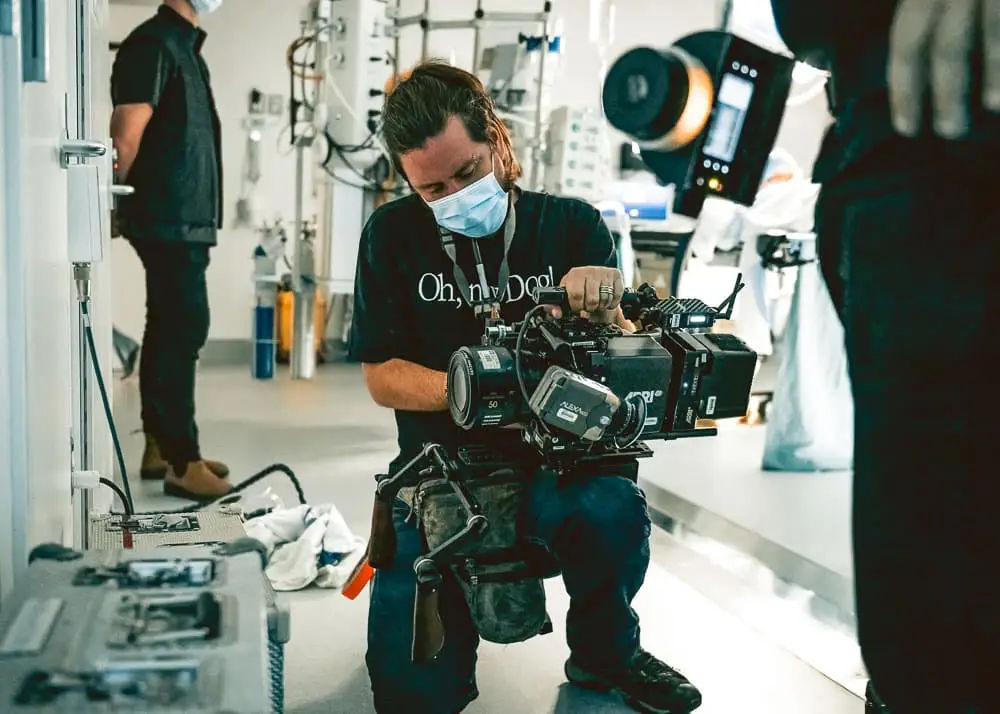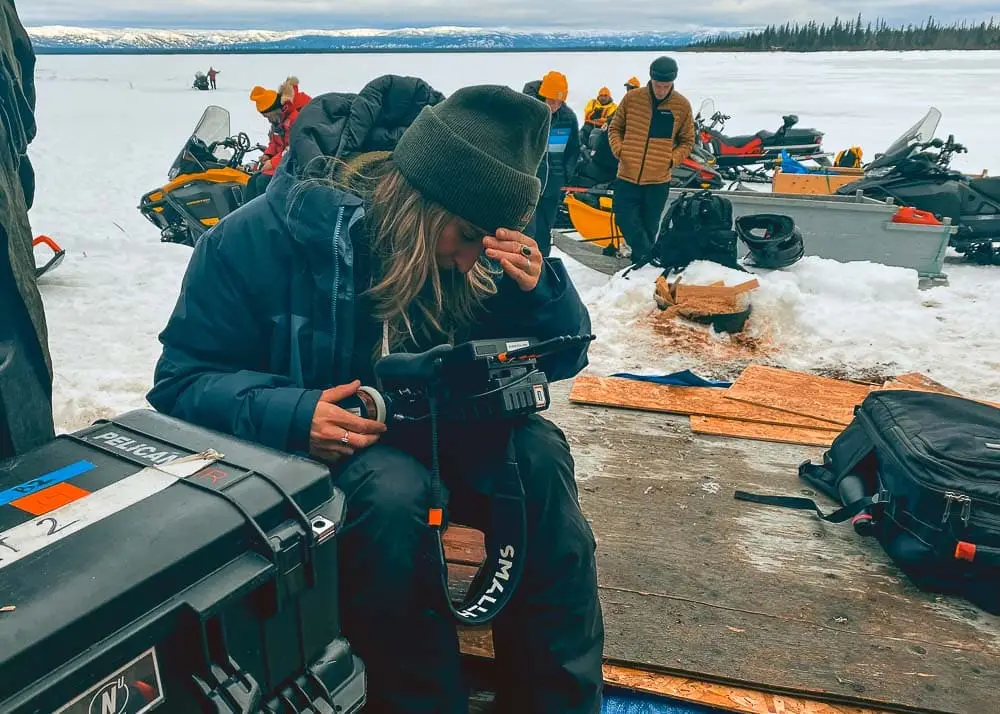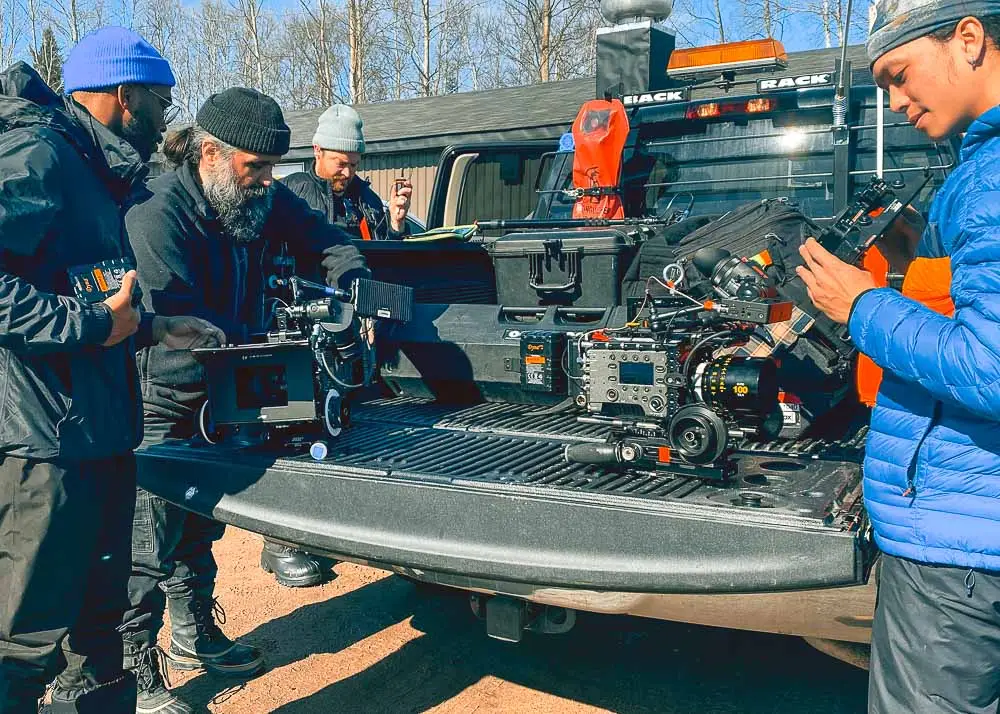Becoming the Best First Assistant Camera
If you’re looking to make a name for yourself in the Canadian film industry, there are a multitude of roles that you can pursue. From cinematography to directing, producing to writing, the options are endless. However, one role that often gets overlooked is that of the first assistant camera (1AC).
The 1AC is the right-hand person of the DP, responsible for everything from pre-production to post-production. During pre-production, the 1AC works closely with the DP to develop a shot list, identify technical requirements, and gather necessary equipment. They also assist with camera tests and rehearsals, ensuring that everything is ready to go once filming begins.
Once filming starts, the 1AC’s job really kicks into high gear. They work closely with the camera operator to set up shots, ensure focus is maintained, and keep the camera in perfect condition. They also work with the rest of the camera department to make sure everything runs smoothly and efficiently, from media management to organizing equipment.
But being a 1AC is not just about technical skills. It also requires excellent communication and leadership skills. The 1AC is responsible for directing the camera trainee and second assistant camera (2AC), ensuring they are working effectively and efficiently. They must be able to communicate clearly and effectively with the DP and rest of the camera department to ensure everyone is on the same page.

Getting Started
Before you can become a successful first assistant camera, you need to understand what the role entails. Essentially, your job is to support the director of photography in capturing the visuals for the film. This involves working closely with the camera team, grip and electric departments, and other members of the crew to ensure that each shot is set up correctly and that the camera movements are executed flawlessly. You’ll also be responsible for monitoring and maintaining the camera equipment, which includes everything from lenses and filters to tripods and stabilizers.
To get started in this role, you’ll need to have some technical knowledge and experience with camera equipment. This can come from formal training programs or simply from working on smaller productions and learning on the job. You should also be comfortable with working in a team environment, as the first assistant camera plays a key role in coordinating with other crew members to ensure that everything runs smoothly on set.
On Set
Once you’ve landed your first job as a first assistant camera, you’ll need to be prepared for the fast-paced, high-pressure environment of a film set. This means being organized, adaptable, and able to think on your feet. You’ll need to work closely with the director of photography to understand their vision for each shot and anticipate their needs in terms of camera placement, movement, and focus.
One of the most important skills for a first assistant camera is communication. You’ll need to be able to relay information quickly and effectively to other members of the crew, such as the grip and electric teams, to ensure that everything is set up correctly. You’ll also need to be able to communicate with the camera operator to make sure that the framing and focus are exactly as intended.
Another key aspect of the job is maintaining a high level of professionalism and respect for your colleagues. Film sets can be intense and high-pressure environments, but it’s important to stay calm, cool, and collected in the face of challenges or setbacks. Remember that you’re all working together to create something amazing, and everyone’s contributions are equally important.
Going Above and Beyond

Tips and Tricks for Becoming a Top First Assistant Camera in Canada
- Build Your Technical Skills: As a first assistant camera, you will need to have a strong technical background in cinematography, lighting, lenses, camera gear, and more. Stay up to date with the latest technology and equipment by attending workshops, seminars, and networking with other professionals in the industry.
- Be a Problem Solver: Filming on location can present many challenges, such as weather conditions, limited time, and unforeseen circumstances. As a first assistant camera, you will need to think quickly on your feet and be a problem solver. Always have a backup plan in case of emergencies and work well under pressure.
- Build Strong Relationships: Working on a film set is a collaborative effort and requires strong teamwork. Build strong relationships with your fellow crew members, including the director of photography, camera operator, sound department, and production team. Communication is key, and being respectful and courteous to everyone on set will go a long way.
- Attention to Detail: As a first assistant camera, you are responsible for making sure the camera is in focus and the shot is properly framed. Pay close attention to detail and take pride in your work. Small mistakes can cause delays and cost production valuable time and money.
- Keep Learning: The film industry is constantly evolving, and new technology and techniques are always emerging. Keep learning and stay up to date with the latest trends and practices in the industry. Take courses and attend workshops to continue developing your skills and knowledge.
Surviving the Canadian Wilderness: A 1st AC's Guide to Documentary Filmmaking
As a 1st Assistant Camera (1AC) in a documentary in Canada, you face unique and challenging responsibilities. Your role includes ensuring that the camera equipment is in top condition, setting up shots, and pulling focus during filming. However, when it comes to filming a documentary, there are additional challenges that require your active participation.
Unpredictable weather is one of the biggest challenges that you may face when filming a documentary in Canada. The weather can change rapidly, and you need to be prepared for any conditions. It’s important to bring the appropriate gear for the weather, such as rain gear, warm clothing, and extra layers. You should also take steps to protect your camera equipment from the elements, such as using rain covers and keeping it dry.
Filming a documentary in Canada may require you to travel to remote locations that are far away from large film centers. This can present unique challenges, such as dealing with equipment failure. As a 1AC, it’s crucial that you have more than enough gear with you, including backup cameras, lenses, and other essential equipment. This will allow you to quickly solve any problems that arise and ensure that filming can continue without delay.
As the second in command in the Camera Department, the role of a 1AC is vital in ensuring that the shots are executed perfectly and that the film is captured exactly as intended. It’s a hands-on job that requires your active participation and attention to detail. You must be ready to think on your feet and adapt to changing circumstances quickly.
Being a 1st Assistant Camera in a documentary in Canada is a challenging but rewarding experience. It requires your active participation and attention to detail, especially when it comes to dealing with unpredictable weather and remote locations. By being prepared and having the necessary gear with you, you can ensure that the filming process runs smoothly and that the final product is of the highest quality.

Working efficiently and effectively with the crew is essential for a 1st Assistant Camera (1AC) in a documentary in Canada. A small crew is common in documentaries, so teamwork and good communication are crucial for success. As the second in command to the Director of Photography (DP), you must understand their creative vision for each shot and ensure that it’s executed perfectly. Collaboration with the sound recordist, production assistants, and other crew members is essential to ensure a smooth filming process.
Apart from weather and equipment failure, a 1AC’s role in a documentary requires adaptability and flexibility. You may have to work in challenging and remote locations, but being well-prepared with the appropriate gear will allow you to overcome these challenges quickly. Additionally, having the right mindset and being proactive will help you tackle any problems that arise on set.
Being a 1st Assistant Camera in a documentary in Canada is an exciting and rewarding experience that requires dedication and hard work. However, the payoff is worth it, as you will be a crucial member of the team that helps bring a creative vision to life. With excellent communication, preparation, and teamwork, you can ensure that everything runs smoothly and contribute to creating a successful documentary.
